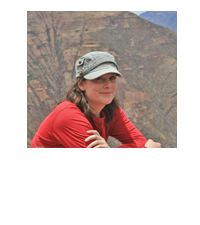
Biography
My research focuses on the daily lives of people who lived during the transition from autonomous villages to the first complex regional polities in Cusco, Peru. Although there has been extensive research on the Inka empire in Cusco (AD 1400-1532), my work is the only excavation project that focuses on the Formative period. As part of this project, I will be able to show that some of the most well known characteristics of Andean societies extend back in time to this fundamental transition.
For example, the Inka are famous for believing in the continued influence of kings long after their death. As mummies, the kings held access to resources and participated in politics as oracles. One of the most exciting aspects of my work has been the identification of the earliest mummies in Cusco. Through careful study of human burial deposits focused on taphonomy, I have learned that by the late Formative period (by 100 BC), a few individuals were stored in accessible locations as desiccated mummies so that their influence could extend beyond their lives.
In addition, the ceremonial architecture at Yuthu focuses on significant nearby and distant features of the landscape. A ceremonial system shaped by ideology in which rights to land and resources were established by ancestors and conceptualized through relationships with a sacred landscape developed alongside the first societies with significant social inequalities in the region and endures in many Andean communities today.
